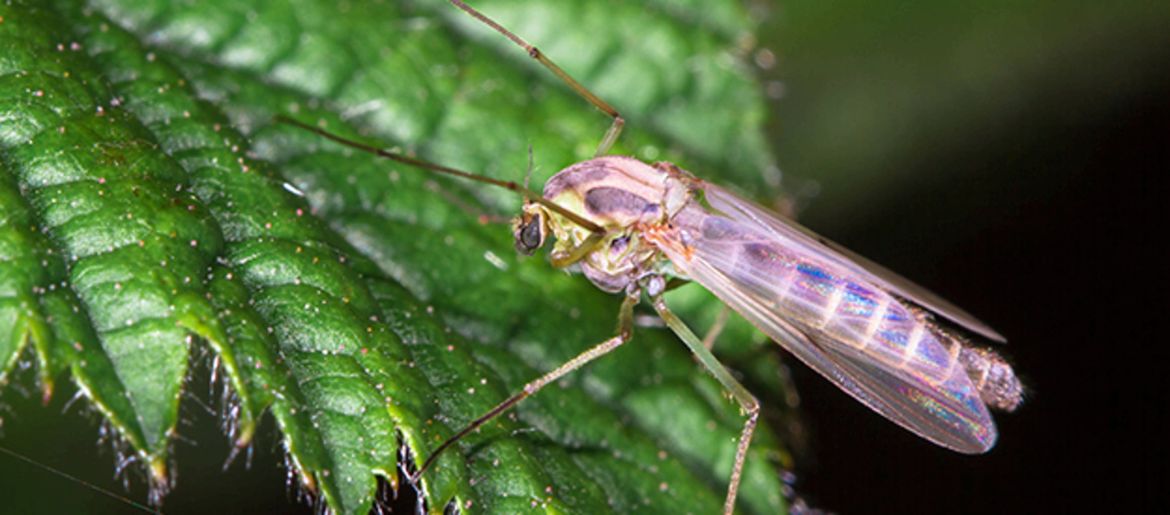How Can I Protect My Horse from Blood-Sucking Insects?
Blood-sucking insects annoy everyone in the summer, not just people! Here are a few tips for making summer life easier for your horses.
During the peak summer months mosquitoes, flies and other biking insects are out and about in droves. These annoying pests are equally unwelcome in the stable. After heavy rains, puddles of water often offer a breeding ground for parasites, and since pasture are often close to forests of water, there are lots of opportunities for nasty little bloodsuckers to annoy your horses.
Repellents
There are lots of different types of insect repellents on the market to fight these kind of pests. The products fall into two main categories: insecticides, which are supposed to kill the insects, and masking agents, which mask the horses' smell so that the insects are not attracted to them. These products mostly consist of fragrance blends based on essential oils. Make sure you test a masking product on a small patch of skin before applying it, as essential oils can irritate the skin. Products offered in specialist shops (both chemical and plant-based variations) are usually well tested, but you should always test yourself to be sure.
You can also use a vinegar rinse to wash your horse as it relieves itching from previous bites.
How long does the effect of these products last?
No products last forever. Most of them lose their effectiveness after a few hours and need to be reapplied to keep insects away. Many products do exaggerate the lasting capability of their products, as they were most likely tested in labs and not actually on the pasture. Keep this in mind when you apply repellents, as it is important to reapply regularly and frequently.
Preventative measures
There are lots of things that you can do preventatively to avoid insect bites. Choosing the right measures to take often depends on the type of insect you want to avoid. Here's a little more information about common pests:
Horseflies
Horseflies love warmth and damp and prefer sunny or partially shaded, sheltered places. They tend to become more aggressive in higher temperatures. Horsefly bites tend to swell up and, but can also carry diseases like lyme disease, anthrax or infectious anaemia.
Damselfly
Damselflies don't sting, but they do lay their eggs in horses's coats. This causes itching, which the horse tries to relieve by biting the area. When the horse bites this area of their coat, they may ingest some of the eggs. The eggs are flushed out of the body in the horse's poop, where they then make themselves at home in the soil.
Mosquitos
The warmer it gets and the less windy it is, the higher mosquitos can fly (up to 100 metres). When it is rainy or windy, mosquitos tend to stay closer to the ground. They also bite mostly at night, causing itching, allergic reactions, or in cases of too many bites, cardiovascular failure. They can also transmit diseases like lyme disease.
Biting Midges
Biting Midges are especially active at dawn and dusk and live near water source. They always attack in swarms, but have less severe bites than black flies. The stitches are itchy and cause sweet itch.
Black flies
Black flies swarm over grazing animals in large swarms, which can be very dangerous. They live on flowing water in sheltered places. They tend to bite in areas where horses have little hair, like around the ears, belly or genitals. Stings can cause bruising, skin irritation, allergic reactions, sweet itch or colic. If the horses suffers too many bites it can go into toxic shock, which can have fatal consequences.
Preventative measures
Now that you know more about which types of insects might be annoying your horses, you can prepare for how to prevent them from getting close. Here are a few tips:
- Attach screens to the windows and doors of your horse's stall.
- Try to avoid pastures near forests, water, or mud.
- Breezy pastures offer the best relief from stinging insects.
- Try to make the stable a cosy place for beneficial insects or animals like spiders, bats or swallows.
- Keep the barn as clean and free of manure as possible as it reduces the areas where insects can lay eggs.
- Finally, use supplementary feed with garlic and/or black cumin. For some horses, this works relatively well as an insect repellent.
Latest reviews
-
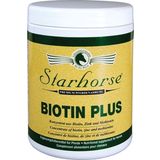 4.8 (4)
4.8 (4)Starhorse Biotin Plus, 550 g
-10%- Biotin, Zinc & Methionine
- Slightly sweet taste
- With vanilla flavour
€ 26,95 € 29,99 (€ 49,00 / kg)Delivery by April 17
-
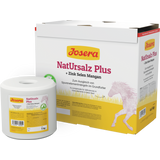 4.0 (1)
4.0 (1)Josera NatUrsalz Plus - Horse Lick, 5 kg
-10%- Can be used in organic farming
- Salt lick with zinc, selenium & manganese
- High acceptance
€ 6,74 € 7,49 (€ 1,35 / kg)Delivery by April 17
-
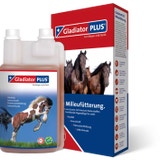 4.6 (71)
4.6 (71)GladiatorPLUS Gladiator Plus Horse, 1.000 ml
- Excellent ingredients
- High bioavailability
- Sugar-free
€ 91,99 (€ 91,99 / l)Delivery by April 17
-
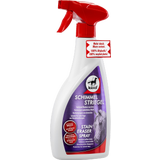 3.7 (3)
3.7 (3)leovet Milton White "Grey Shimmer", 550 ml
-10%- Fights discolouration
- Brilliant white effect
- Made with natural proteins
€ 15,25 € 16,99 (€ 27,73 / l)Delivery by April 17
